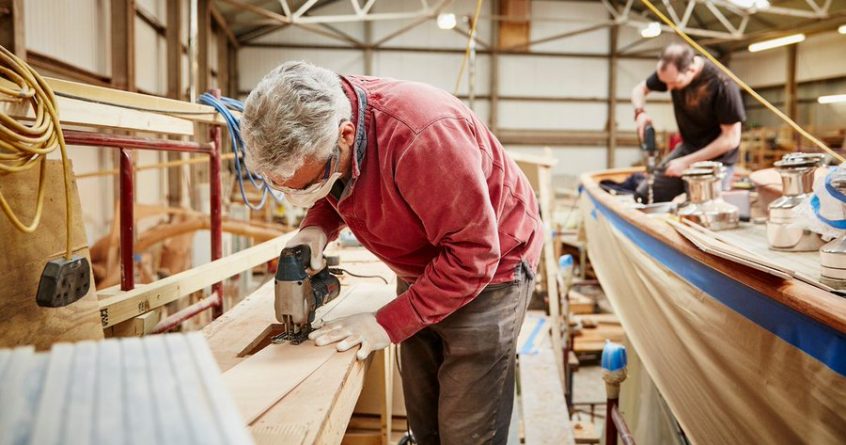Some men have a “man drawer”, as the comedian Michael McIntyre so entertainingly describes. Others go one bigger and have a “man shed” or “cave”.
The notion of such spaces helping mental health has really taken off – and is championed by the Men’s Sheds Association.
It supports Men’s Sheds community groups across the country, where people work on practical projects together to boost wellbeing.
“Men’s Sheds aim to bring people together to tackle loneliness by making environments where men, and women, but often older men, come together in a social space, doing practical activities like woodwork,” says Dr Bryony Porter, at the University of East Anglia’s School of Health Science.
Her team at the university has launched a project to measure how these sheds can improve mental health and fight loneliness.
They are looking for ‘Shedders’ to take part in the research, held in collaboration with the Men’s Shed Association. Their aim is to better understand the role of social prescribing – where health professionals refer patients for support in the community to improve their health and wellbeing.
Dr Porter said: “They are really unique places and the activities are similar to those of garden sheds, but for groups to enjoy together.
“They’ve been set up to tackle loneliness and they address a big gap in the provision of community services for men, particularly older men.”
Shedders (existing Shed members) will be given two online questionnaires to fill in, and some will be interviewed.
“We also want to know more about the people who attend Sheds, their motivations, the benefits and who this approach may help,” Dr Porter added.
Charlie Bethel, from the UK Men’s Shed Association, said: “This project will provide a wealth of knowledge and insight to communicate the intrinsic value of Sheds to men, women and society.
“Men’s Sheds are so diverse, and each one meets the needs within their communities.”
The Men’s Shed Association website (menssheds.org.uk) maintains a map of Sheds around the country, and provides advice to people who want to start one.
The group launched in 2013 when there were 30 Sheds, then became a charity two years later as the movement grew.
There are now more than 600 Men’s Sheds, and 13,000 Shedders, with between six and nine new Sheds opening every month.
Mr Bethel said: “Understanding the impact and people’s motivations better will help us formulate new approaches to encouraging the development of more Sheds and more people joining Sheds.
“This work will certainly help us to understand ourselves more.”

